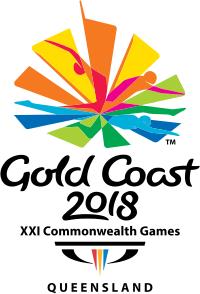The Commonwealth Games are one of the most important multi-sports discipline events after the Olympic Games – for Squash it has been a labour of love.

Photo credit: World Squash Federation
Come 4th April 2018, it will mark a 20-year association for Squash and the multi-sports event, in fact, Squash was included in the Commonwealth Games before Tennis and became the second racquet sport after Badminton to feature in the event.
As many followers of the Commonwealth Games movement, the event is open to 52 nations of the Commonwealth; the most dominant teams are Squash Australia, England, Wales, Canada, Pakistan, Malaysia, Scotland, New Zealand, South Africa and India have fielded teams in nearly Squash competition of the event.
1998: The debut of Squash and the debut of a future champion
The lovely city of Kuala Lumpur, Malaysia hosted the XVI Commonwealth Games and saw the inaugural Squash make its debut at the multi-sport events.
Oddly enough, the event saw the world’s senior debut of a young squash star…..Nicol David, who was on the cusp of greatness as she was progressing well through the junior squash ranks. At the time, she was one of two female squash players from the home nation, she competed in both individual and double categories with fellow squash pro Leong Siu Lynn.
From the competition, the winners were Peter Nicol of Scotland in the Men’s category and Michelle Martin of Australia winner of the Women’s category; in the team’s category, England won their first Men’s & Women’s Doubles titles. However, in the mixed doubles competition, Australia claimed that title with Craig Rowland & Michelle Martin beating Simon Parke and Suzanne Horner of England in the final.
Fact: Pete Nicol is the only Squash player to have won Commonwealth Games Squash titles representing both Scotland (1998) and England (2006) respectively.
A record entry of nations in the 2010 Games
The XIX Commonwealth Games in Delhi, India saw a record entry of 28 commonwealth countries enter the Squash events. One notable such nation, the Caribbean region represented by Barbados, Guyana, Jamaica, St Vincent, and Trinidad & Tobago field teams in the competition.
Sadly they made the final stages, but we all know how these Caribbean countries have gone on to develop junior squash initiatives to increase competitiveness in future Commonwealth Games tournaments.
England won the most medals, beating rivals Australia by one.
Commonwealth Squash Champions
Since 1998, the following squash pros have won the Squash Commonwealth Games title, as well as Professional Squash Association titles:
Men’s
• Pete Nicol – England & Scotland (1998, 2006)
• Nick Matthew – England (2010, 2014)
• Johnathan Power – England (2002)
Women’s
• Nicol David (MAL) – (2010, 2014)
• Michelle Martin (AUS) – (1998)
• Natalie Grinham (AUS) – (2006)
• Sarah Fitzgerald (AUS) – (2002)
Top 5 nations medal table (Australia has more Gold medals):
• Australia – 30
• England – 34
• New Zealand – 9
• Malaysia – 4
• Canada – 2
Return to Australia in 2018
The Gold Coast, Queensland in Australia will play host to the XXI Commonwealth Games and looks to be one of the most important Squash competitions to watch in 2018, as it will be the first time there will be two major competitions Squash fans can watch – the other being the showcase event at the Youth Olympic Games in Argentina.
Final Thoughts
To conclude, there is no doubt the home nations of the Caribbean will be looking to make their mark on the event and England will be aiming to top the all-time medal table with more gold medals.
What is admirable about the Commonwealth Games is that it is an event that showcases all racquet sports, hence it makes racquet sports more marketable.
The next Commonwealth Games is in 2022, in the great city of Birmingham – so expect the great place to put on a great show of Squash competition.
Squash is a great addition to the Commonwealth Games and truly a sport with international cohesion, which can inspire young people of the Commonwealth nations to take up.






